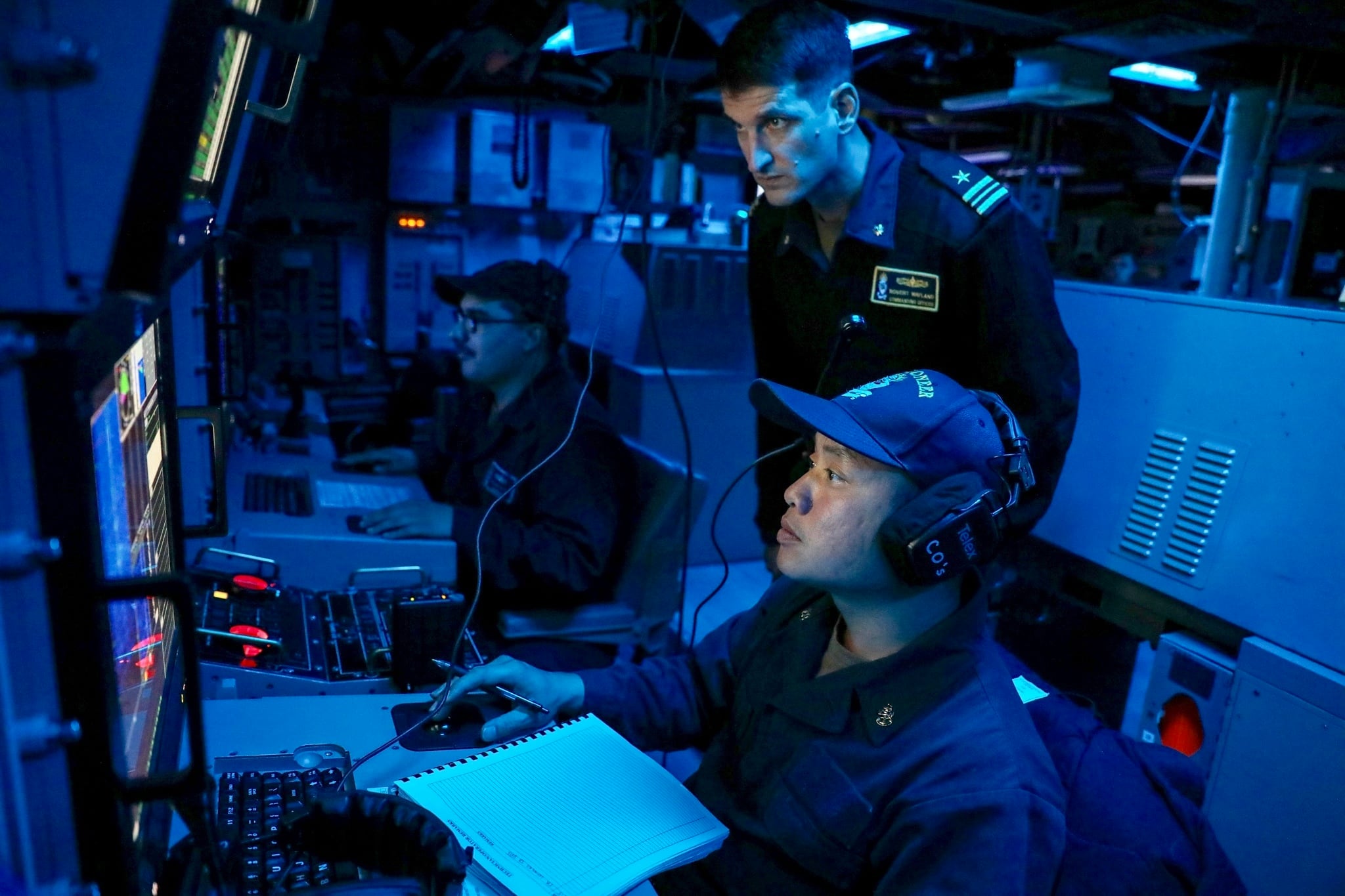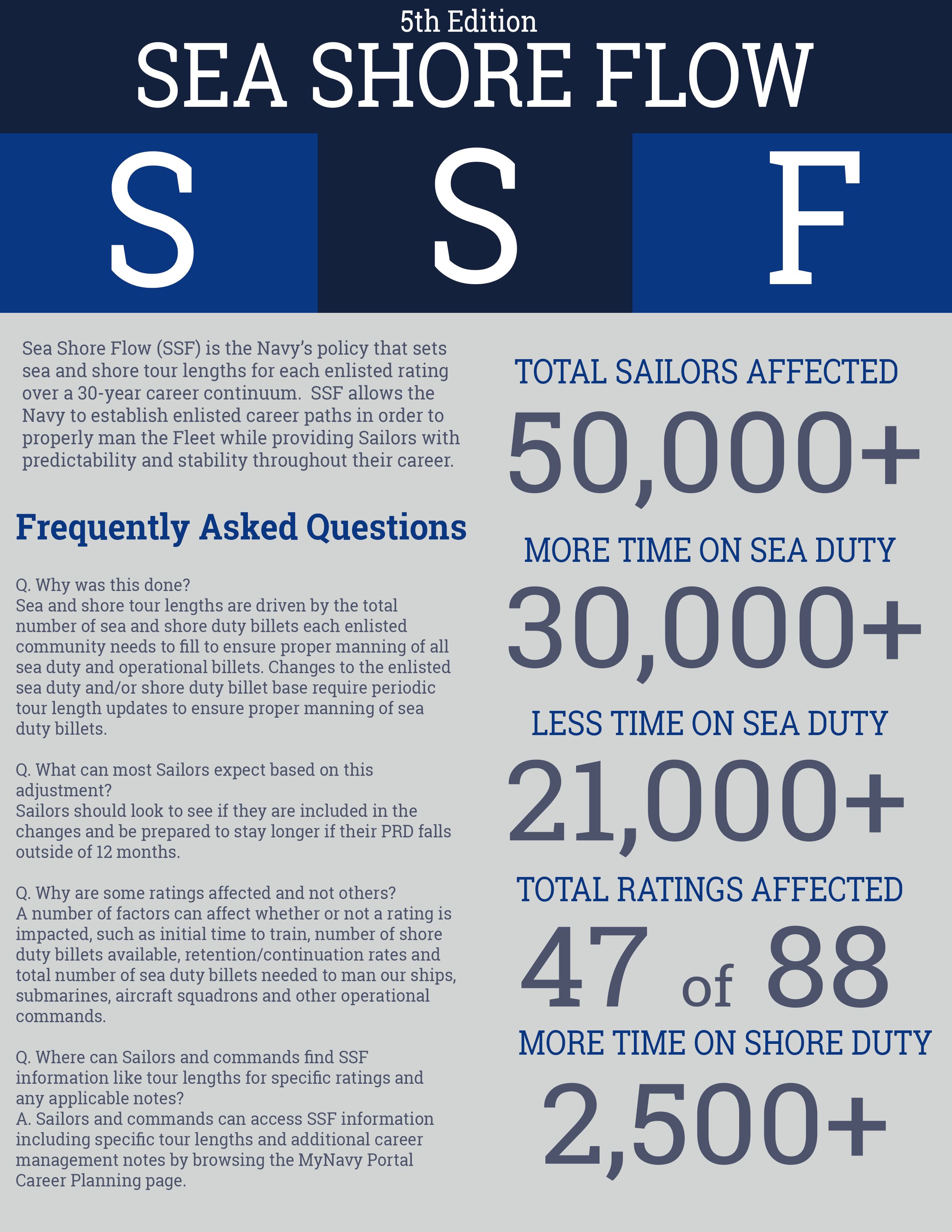More than 50,000 sailors will feel the impact of the Navy’s most recent overhaul of sea and shore tour lengths.
The Navy announced the update in an administrative message Monday to its enlisted career management policy, known as Sea Shore Flow.
The policy prescribes the length a sailor can expect on their first sea and shore tours and every tour to follow along a 30-year career trajectory.
“This was a necessary adjustment to ensure that we have the right people in the right billets to maintain our operational readiness across the Fleet,” said Chief of Naval Personnel Vice Adm. John B. Nowell Jr. in a statement accompanying Monday’s update.
The updates affect sailors in 47 ratings. Of those, 20 ratings will see longer sea tours, 22 will have their sea tours cut short and seven will see longer shore tours.
This is the first update since 2016, when 13 ratings saw more sea time and 15 saw a drop. Three years ago, 42 ratings saw no change to tour lengths.
This time, there was no change for 41 ratings.
The sea-shore flow system maps out tour lengths, so that every sailor in a given rating will serve about the same amount of time at sea and shore over a 30-year career.
The policy caps sea tours at five years, but sailors are allowed to extend that if they want.
Sailors within 12 months of a planned rotation are not affected by the update. Those outside of their 12-month window will have their planned rotation date adjusted in their electronic record.
Detailing windows will shift accordingly, too.
As the force grows and demands change, the Navy must realign tour lengths to reflect those needs, Fleet Master Chief Wes Koshoffer said in an interview with Navy Times.
Each update is a reflection of several variables, including accessions, demand for billets from the fleet and the need for support from the shore.
“We are a seagoing Navy,” Koshoffer said. “We’re in great power competition. A layman might think you can just put sailors at sea forever and that would fix the problem. That’s really not true. In order to have a healthy Navy, you have to have balance.”
Of the 20 ratings that will see increased sea duty tour lengths, 14 will feel the extension during their first tours.
That works out to 23,597 sailors out of a total 30,058 who will see more time on sea duty overall, according to documents provided by the Navy to Navy Times.
Another 21,667 sailors will see less time on sea duty, including 12,329 sailors from 11 ratings during their first sea tour.
To Koshoffer, that reflects a need to focus on filling gaps at the apprentice level.
“That’s sort of what we’re chasing,” he said.

This update also closes what Koshoffer called “persistent gaps at sea" in recent years.
He used the mineman rating as an example. The billet can expect to see a 12-month increase for sailors on their first sea tour, with no increases for the second and fourth tours and a decrease of six months by the third, according to the update.
That update reflects a need that the Navy has right now as it counters threats by Iran, Russia and China.
“It is a maritime era and the ability to know, if you look at the world situation with straits and choke points and these strategic or maybe tactical locations in places all over the world, the ability to detect and deal with mines and minefields is a high priority mission for us right now,” Koshoffer said.
“We’re building capacity at sea right now to deal with mines and central to that is the minemen rating.”

Courtney Mabeus-Brown is the senior reporter at Air Force Times. She is an award-winning journalist who previously covered the military for Navy Times and The Virginian-Pilot in Norfolk, Va., where she first set foot on an aircraft carrier. Her work has also appeared in The New York Times, The Washington Post, Foreign Policy and more.





